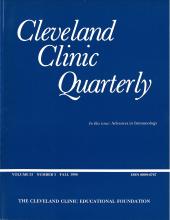ABSTRACT
Tumoricidal activity of activated macrophages has been clearly demonstrated by various in vitro and in vivo studies of a wide variety of animal tumor systems. Recent in vitro studies have shown that human peripheral blood monocytes can also be activated to generate similar tumoricidal activity. Significant inhibition of spontaneous lung and liver metastases in different animal tumor systems has been demonstrated with intravenous therapy of macrophage-activating agents such as muramyl dipeptide and C-reactive protein delivered in liposomes. These studies provide a rationale for a similar approach in clinical cancer therapy, particularly in an adjuvant setting. The distinct advantages of this approach include low toxicity, nonspecificity of tumor-cell killing, tumoricidal activity against drug-resistant tumor cells and cells with metastatic potential, and lack of development of tumor cells resistant to macrophage killing. Admittedly, these advantages are only theoretical at this stage, and appropriate clinical trials must be carried out to demonstrate whether they can be realized in a clinical setting.
- Received December 1985.
- Accepted February 1986.
- Copyright © 1986 The Cleveland Clinic Foundation. All Rights Reserved.






